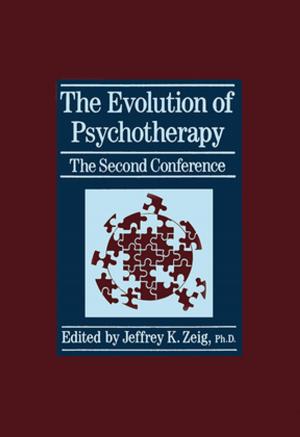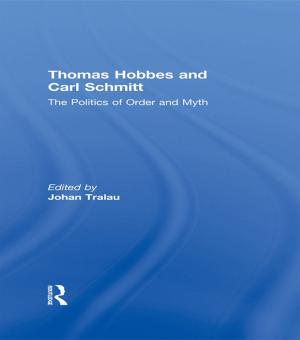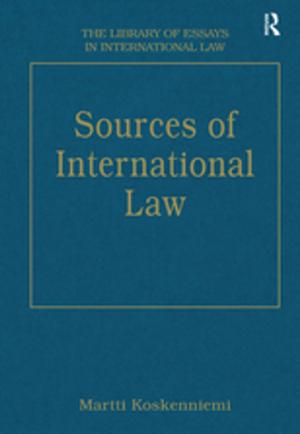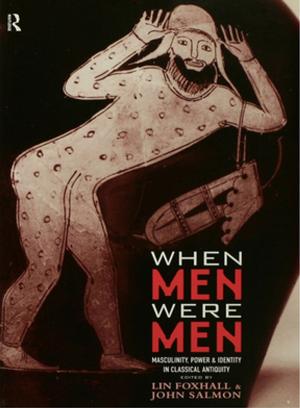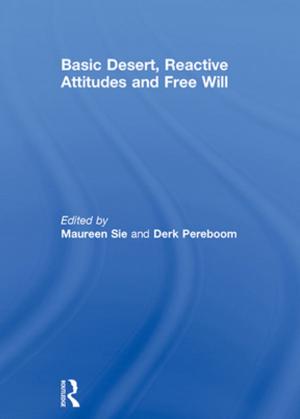Crossovers
Anti-zionism and Anti-semitism
Nonfiction, History, Middle East, Social & Cultural Studies, Social Science| Author: | Shlomo Sharan | ISBN: | 9781351524827 |
| Publisher: | Taylor and Francis | Publication: | February 6, 2018 |
| Imprint: | Routledge | Language: | English |
| Author: | Shlomo Sharan |
| ISBN: | 9781351524827 |
| Publisher: | Taylor and Francis |
| Publication: | February 6, 2018 |
| Imprint: | Routledge |
| Language: | English |
Crossovers compares Jewish anti-Zionism and Palestinian anti-Semitism from political and philosophical points of view. The authors' goal is to expose what is unique about these phenomena, and what they share, so that both ideologies and their practical impact can be better understood.
The authors identify a symbiotic relationship between anti-Semitic Palestinian doctrines and those Jews who are anti-Zionists. There has been a great deal of research on these as separate phenomena, but there has thus far been no research that has noted their similarities. Palestinian anti- Semitism and Jewish anti-Zionism may stem from different sources, but they have similar consequences. Palestinian views derive from religious Islamic as well as nationalist- Arab roots, while the views of anti-Zionist Jews grew out of an ideological-Marxist-Trotskyite background. But both share a common goal: the destruction of the Jewish-Zionist nation, and a common strategy, to achieve a bi-national state as a first stage in the march to this goal.
Jewish history is replete with examples of how Jews have ignored repeated threats and acts of violence against them. That characteristic of Jews reflects their Messianic belief, but it lacks a basis in history. That belief has resisted change even in the face of threats that were obvious and that have endangered Jewish lives in the past. Contemporary anti-Zionists share this optimistic outlook. Paradoxically, while the Jewish-Zionist State of Israel contends in public that another Holocaust will not happen and is patently impossible, the lesson of recent Jewish history is that a Holocaust can happen again. This work is unrelenting in its criticisms and tough minded in its assessments of the future. It merits careful, serious reading.
Crossovers compares Jewish anti-Zionism and Palestinian anti-Semitism from political and philosophical points of view. The authors' goal is to expose what is unique about these phenomena, and what they share, so that both ideologies and their practical impact can be better understood.
The authors identify a symbiotic relationship between anti-Semitic Palestinian doctrines and those Jews who are anti-Zionists. There has been a great deal of research on these as separate phenomena, but there has thus far been no research that has noted their similarities. Palestinian anti- Semitism and Jewish anti-Zionism may stem from different sources, but they have similar consequences. Palestinian views derive from religious Islamic as well as nationalist- Arab roots, while the views of anti-Zionist Jews grew out of an ideological-Marxist-Trotskyite background. But both share a common goal: the destruction of the Jewish-Zionist nation, and a common strategy, to achieve a bi-national state as a first stage in the march to this goal.
Jewish history is replete with examples of how Jews have ignored repeated threats and acts of violence against them. That characteristic of Jews reflects their Messianic belief, but it lacks a basis in history. That belief has resisted change even in the face of threats that were obvious and that have endangered Jewish lives in the past. Contemporary anti-Zionists share this optimistic outlook. Paradoxically, while the Jewish-Zionist State of Israel contends in public that another Holocaust will not happen and is patently impossible, the lesson of recent Jewish history is that a Holocaust can happen again. This work is unrelenting in its criticisms and tough minded in its assessments of the future. It merits careful, serious reading.




